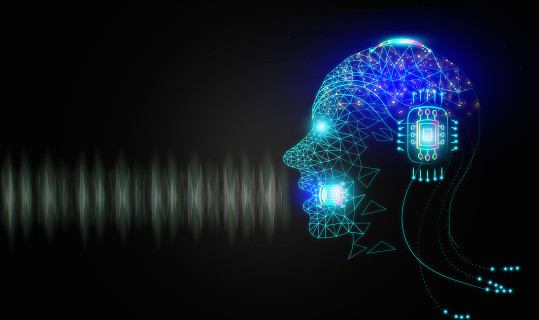
Last month, the Grammy Awards underwent a series of changes to align with the evolving music industry.
Among the newly introduced guidelines, the protocols related to technological advancements in machine learning garnered significant attention: "Only human creators" could win the music industry's highest honor in a decision aimed at the use of artificial intelligence in popular music.
"A work that contains no human authorship is not eligible in any category," the rules read in part.
Recording Academy CEO and President Harvey Mason Jr. acknowledge that both the music industry and the Grammys are adapting to this emerging technology.
"Here's the super easy, headline statement: AI, or music that contains AI-created elements is absolutely eligible for entry and for consideration for Grammy nomination. Period," Mason told The Associated Press. "What's not going to happen is we are not going to give a Grammy or Grammy nomination to the AI portion."
According to Harvey Mason Jr., if an AI or voice modeling program takes on the lead vocal in a song, it would be considered eligible for a songwriting category but not for a performance category.
This is because the performance aspect is not a result of human creation, as he explains.
"Conversely, if a song was sung by an actual human in the studio, and they did all the performing, but AI wrote the lyric or the track, the song would not be eligible in a composition or a songwriting category."
"As long as the human is contributing in a more than de minimis amount, which to us means a meaningful way, they are and will always be considered for a nomination or a win," he continued.
"We don't want to see technology replace human creativity. We want to make sure technology is enhancing, embellishing, or additive to human creativity. So that's why we took this particular stand in this award cycle."
In light of the growing popularity of songs created using AI technology, such as David Guetta's "Emin-AI-em," the AI compositions by TikTok user @ghostwriter977, and Grimes' voice modeling AI software, the Recording Academy has been actively considering rules related to AI.
To develop their AI guidelines, the Recording Academy conducted thorough research, including organizing tech summits to gather insights and expertise on the subject.
"I've met with the copyright office. We've talked about the future and what that looks like on a federal level and the legislative level," Mason said, adding that AI conversations "really came to a head in the last six months."
The announcement of the new Grammy AI protocols coincided with Paul McCartney's revelation that an artificial intelligence system was used to extract John Lennon's voice from an old demo for what he referred to as "the last Beatles record."
In regard to the eligibility of such a song for a Grammy nomination, Harvey Mason Jr., the CEO of the Recording Academy, stated that without having detailed knowledge about the extent and implementation of the AI technology, he couldn't definitively confirm or deny its eligibility.
"We'll see what it turns out to be," he said. "But I would imagine from the early descriptions that I've heard there would be components of the creation that would be absolutely eligible."
Mason affirms, "People are using the technology. I'm imagining it's going to be involved in a lot of records a lot of songs this year, so we'll see if some of them get nominated or not, but I'm sure there'll be some that will be submitted."
The 2024 Grammy Awards is scheduled to take place on Sunday, Feb. 4, 2024, at the Crypto.com Arena in Los Angeles. The ceremony will be broadcast live on CBS and live-streamed on Paramount+.
© 2025 Latin Times. All rights reserved. Do not reproduce without permission.




